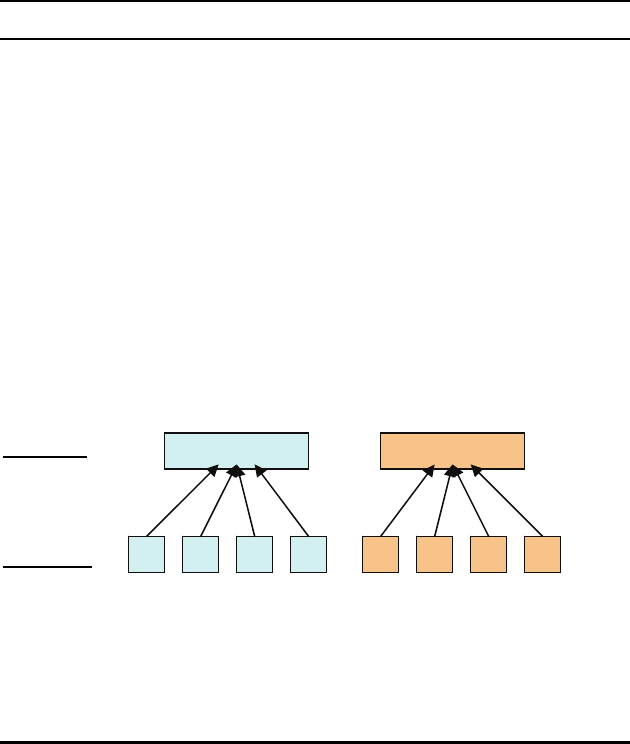
5
The implementation of QoS (Quality of Service) and benefits of using 802.1p
priority queuing are described here.
Advantages of QoS
QoS is an implementation of the IEEE 802.1p standard that allows network
administrators a method of reserving bandwidth for important functions that
require a large bandwidth or have a high priority, such as VoIP (voice-over
Internet Protocol), web browsing applications, file server applications or
video conferencing. Not only can a larger bandwidth be created, but other
less critical traffic can be limited, so bandwidth can be saved. The Switch
has separate hardware queues on every physical port to which
packets from various applications are mapped to and assigned a
priority. The illustration below shows how 802.1P priority queuing
is implemented on the Switch. The eight IEEE 802.1P priority
levels defined by the standard are mapped to the two class queues
used in the Switch.
2 Priority Queues
Queues:
Priority:
Class-0
0
Class-1
1 4 72 3 5 6

















